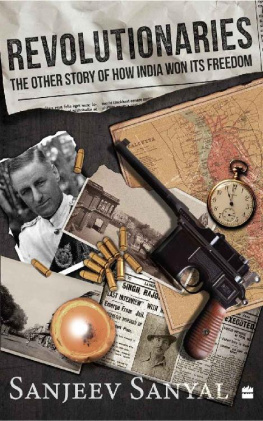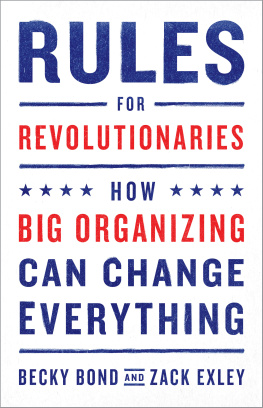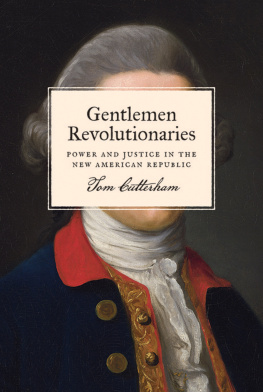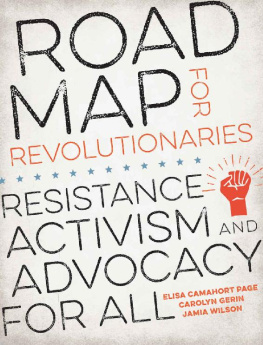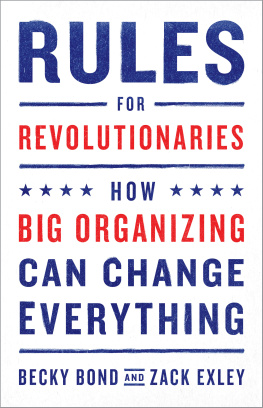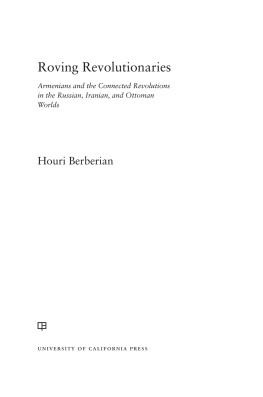Copyright 2014 by Jeff Fleischer / All rights reserved. No part of this publication may be reproduced or used in any form or by any means graphic, electronic, or mechanical, including photocopying, recording, or information storage and retrieval systems without the written permission of the publisher. / Juvenile Nonfiction > History > General / Library of Congress data available / ISBN: 978-1-936976-74-4 / Design by Adam Grano
Manufactured in the U.S.A.
DOC 10 9 8 7 6 5 4 3 2 1
4500514208
INTRODUCTION
As a kid without daily access to the Internet or cable, I first learned about a lot of important news stories on network TVwhich meant that the story was important enough for each network to interrupt whatever it had been showing before. I remember watching TV one weekend when our regularly scheduled broadcast was set aside to show footage of Nelson Mandela, the South African revolutionary who had been in prison more than twice as long as Id even been alive, walking out a free man. Id learned about Mandelas struggle against South African apartheid in school, in magazines, even in music. Id grown to admire him long before his release from prison, and I got to follow how his story changed history from there, right up until his death (just a few months before I began work on this book). Even to a kid, Mandela showed in real time how obviously one man could change the course of history for the better.
Not all the people in this book are as admirable as Mandela, but they were all important revolutionaries in their own time. Every one of them managed to gather a big enough following to go down in history. Some tried to overthrow governments or stop invasions, while others fought for the rights of minorities or the poor.
As you probably guessed, getting the list down to just fifty revolutionaries wasnt an easy task. The worlds first dominant empire, that of the Assyrians, was fighting uprisings more than 4,000 years ago, so theres plenty of revolutionary history to choose from.
The list got narrowed a few ways. First, while its perfectly fair to call somebody a revolutionary in just about any field, everybody here made their biggest impact by influencing (or trying to influence) who was in charge of their homeland or how those in charge treated their people. (That means no Albert Einstein or Bob Dylan or Leonardo da Vinci.) Second, lots of revolutions throughout history didnt have an obvious, clear-cut leader, and there were lots of revolutionary leaders about whom we either know little, or little that is true. Third, some figures didnt make the cut simply because their stories were similar to those of others on the list, and there was only so much room. If your favorite revolutionary isnt in the book, theres a good chance he or she was under serious consideration.
To be clear, this book isnt an attempt to put together a top fifty list or any kind of ranking. The fifty famous figures appear in the order of their birth, and each chapter gives a brief history of their life and accomplishments, along with some bonus facts. You can read them in order, skip around, or read some now and more laterits up to you.
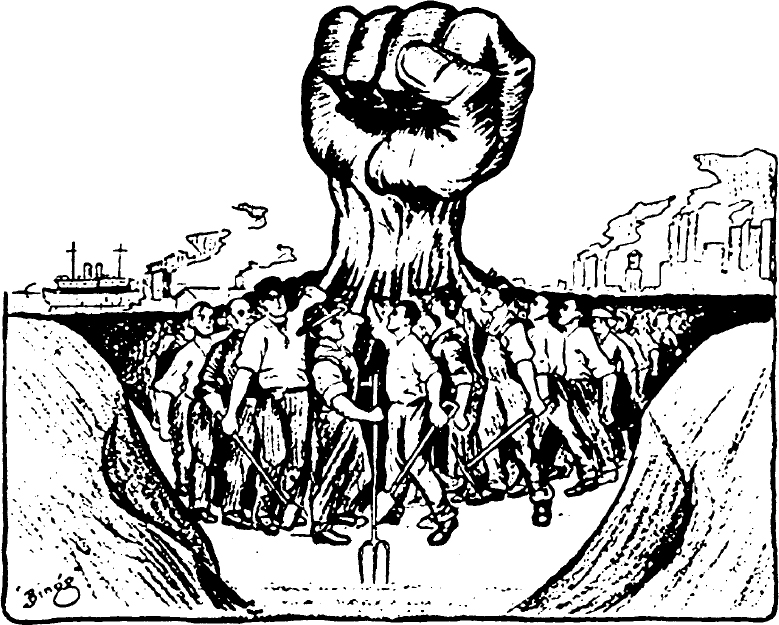
The people chosen for the final fifty were also selected for variety. Some are obviously good guys (its hard to find much fault with Gandhi, for example). Others are pretty villainous, but most fit somewhere in between. For a lot of them, it really depends on which side is telling the storyas the old clich goes, one persons freedom fighter is anothers terrorist. Some of them emerged from their revolutions as big winners, others died in the service of a winning cause, and still others lost disastrously.
The final fifty span history, from Hannibals stand against ancient Rome to the civil rights struggles of just a generation ago. They span the globe, representing every continent except Antarctica (counting Oceania instead of just Australia). Some became revolutionaries as teenagers, others late in life. They include slaves and generals, suffragettes and queens, Communists and nationalists.
What all fifty fascinating figures have in common is that each onefrom Vercingetorix to Joan of Arc to Vladimir Leninstarted out as a huge under-dog, but inspired supporters to fight for their cause. As John Lennon (no relation) and the Beatles put it in their song Revolution, we all want to change the world. Win or lose, each of these fifty people can say they did. 
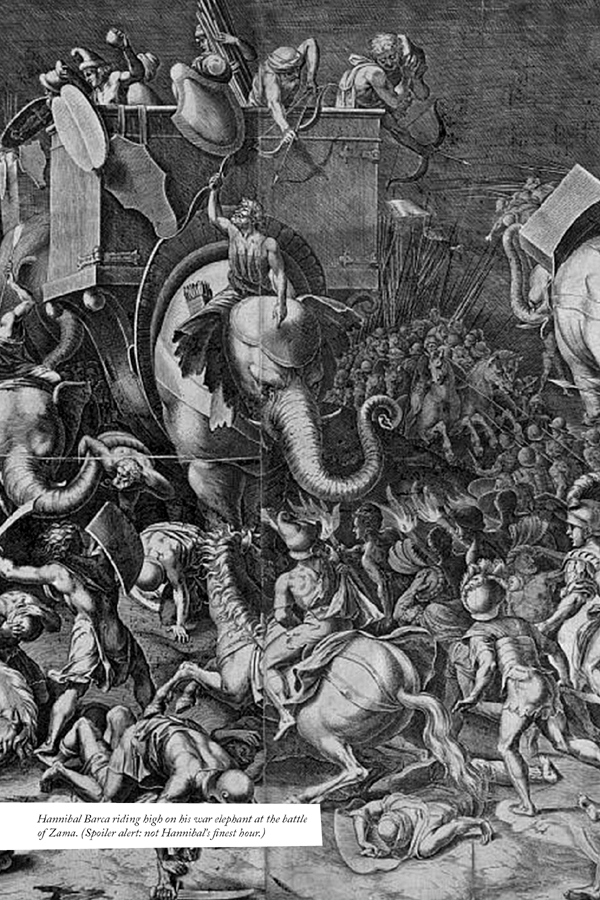
IMAGE COURTESY OF LIBRARY OF CONGRESS
HANNIBAL BARCA
THE TIME:247c. 183 BCE
THE PLACE:Carthage
THE OPPONENT:Rome
In its prime, Rome was the heavyweight champion of world empires, the kind you had to be lucky just to fight to a draw. To get there, though, Rome had to survive its toughest foethe ingenious Carthaginian general Hannibal Barca.
Carthage, a Phoenician city-state on the North African coast of modern-day Tunisia, was the biggest rival Rome had, a naval and trade power that totally dominated the Mediterranean. The Romans and Carthaginians (who the Romans called Punics) were clearly the two regional superpowers by 264 BCE, when both sides were asked to intervene in a local war in Sicily. Things quickly got out of hand, and they soon wound up fighting each other in what became the thirteen-year-long First Punic War. After a series of Roman victories, Carthage agreed to a peace treaty, giving up its interest in Sicily (and several other territories) and agreeing to pay a hefty annual war debt to Rome.
It got worse. First, Rome waited until the Carthaginians started demilitarizing and then changed the terms of the peace, leaving Carthage no choice but to accept a larger debt. As a result, Carthage didnt have the money to pay its armywhich mostly consisted of hired mercenaries from neighboring territoriesand many of them angrily marched on the city. And while Carthage was busy fighting a full-scale war against its former mercenaries (using, naturally, more mercenaries), Rome grabbed control of a few under-defended Mediterranean islands.
None of this sat well with Hamilcar Barca, and he swore revenge for what the Romans had done. Probably the best of Carthages military commanders, Hamilcar had personally gone undefeated in the Punic War. He felt betrayed when his government agreed to peace, and then got stuck having to fight against his own guys on its behalf. Once the ex-mercenaries were defeated, Hamilcar put together a new (also mostly mercenary) army and took it to Europe, where he spent the rest of his life conquering much of whats now Spain (Barcelona, for example, is named for his family).
THE SINCEREST FORM OF FLATTERY


